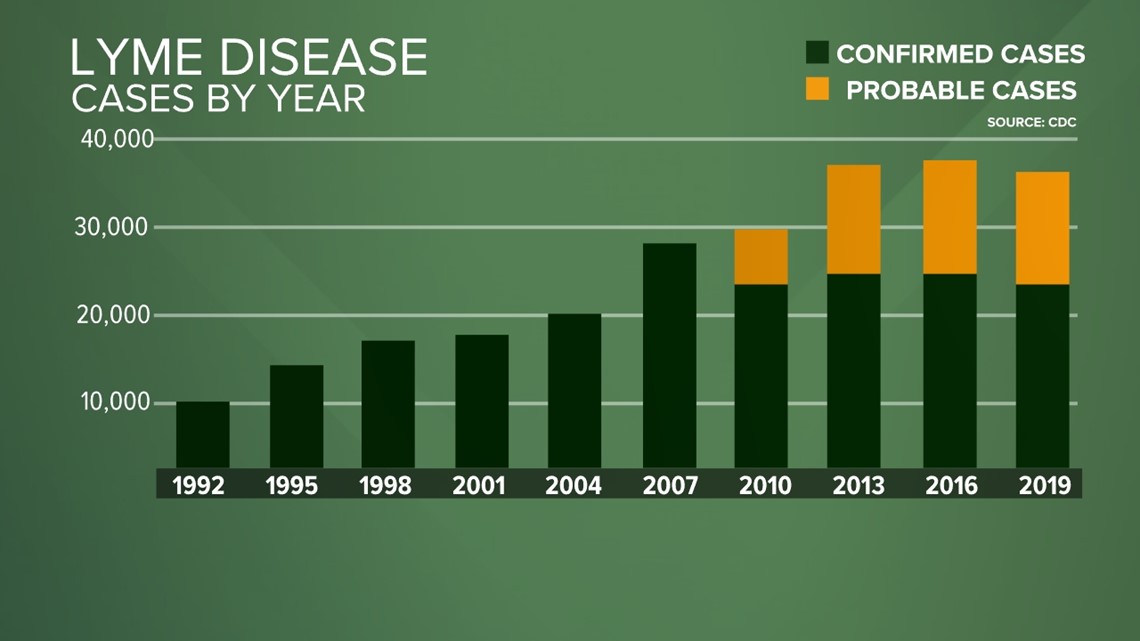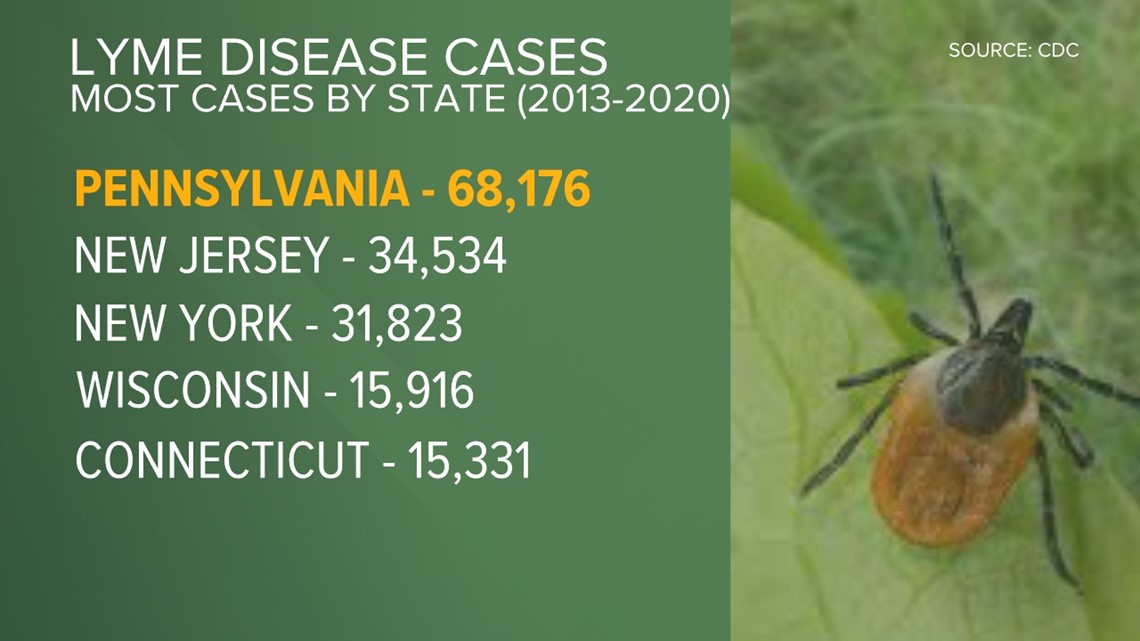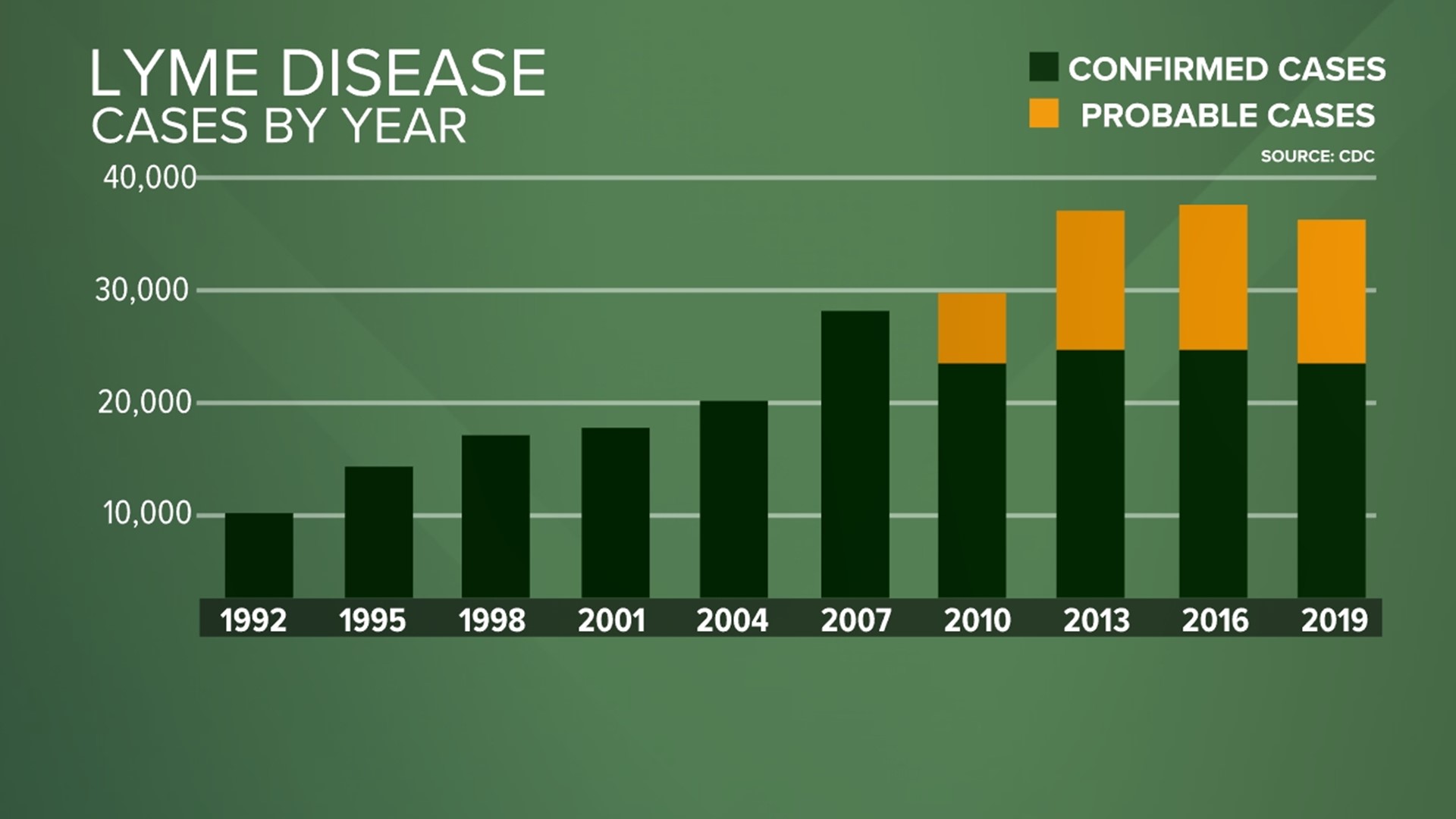MANCHESTER, Pa. — As parts of the globe hit some of the highest temperatures on record this summer, the heat doesn't only impact human health.
The warmer average global temperature at all times of the year, likely due to climate change, also lengthens tick season.
"Even if it's a random warm day in the spring or late summer, that's a time when we'll see more ticks," Rachel Mowry, a nurse practitioner with WellSpan Health, said.
Seeing an increase in ticks during the warmer months is nothing new. However, when our cooler winter months turn warmer as well, it becomes a concern.
The time between the months of January and May is considered primetime from tick dormancy to emergence. Since 1970, Pennsylvania's average temperature for the first five months of the year has risen by four degrees across most of the Commonwealth, according to Climate Central.


Nationwide since 1991, the average number of cases per year of Lyme Disease has more than doubled.
And since 2013, of the top ten states with the highest number of Lyme Disease cases per year, Pennsylvania topped the list of the most number of cases every year until 2020, when the number of Lyme Disease cases dropped likely due to COVID-19 quarantine. In 2017 alone, Pennsylvania had nearly 12,000 new cases of the tick-borne illness.


The disease usually presents itself between a few-to-thirty days after infection. According to Mowry, ticks need to be embedded in the skin for 48-72 hours to cause harm usually, so frequent checks for ticks often is the best prevention for tick-borne illnesses. Thirty percent of ticks carry disease, according to the Allegheny County Health Department.


Common symptoms of Lyme Disease include rash, fever and fatigue. But it can carry long-term effects in more extreme cases.
"It can lead to lifelong problems like joint problems, or the bigger concern, neurological problems," Mowry explained.
And it's not only Lyme Disease that ticks can carry, but also the Powassin virus and Rocky Mountain Spotted Fever, according to Mowry. The best defense other than tick checks includes wearing long pants with taller socks and EPA-approved repellent with DEET or Permethrin.
For more information on ticks and Lyme Disease, you can visit the CDC website.

